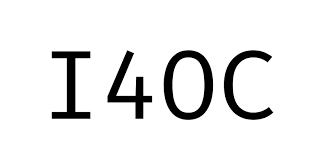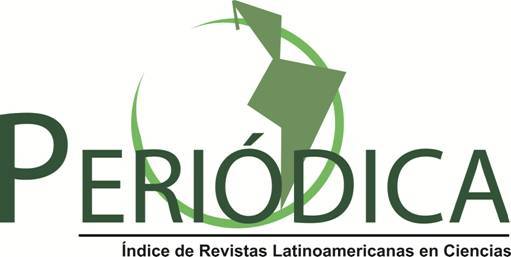Efecto de bioestimulantes microbianos en el tamaño y peso de frutos de chile morrón y jitomate en condiciones protegidas de macrotúnel
DOI:
https://doi.org/10.18633/biotecnia.v25i1.1772Palabras clave:
Genifix, Bacillus, Trichoderma, hortalizas, agricultura protegidaResumen
La producción intensiva de vegetales ha provocado dependencia excesiva de la fertilización química, lo cual ha generado problemas ambientales y de inocuidad de los alimentos. Una opción para reducir la cantidad de fertilizantes sintéticos es el manejo de nutrientes mediante inoculaciones microbianas. El objetivo fue evaluar el efecto de dos bioestimulantes a base de Trichoderma spp. y uno de Bacillus spp. en el diámetro, longitud y peso de frutos de chile morrón y jitomate en condiciones de macrotúnel. Los tratamientos fueron: Genifix®, T22®, Mix® y testigo. Se utilizó un diseño experimental en bloques al azar con cuatro repeticiones. Se utilizaron tres cortes de frutos por cultivo. Las variables de respuesta fueron: peso, diámetro y longitud de fruto, además del peso de 20 frutos elegidos al azar. Los frutos obtenidos con el tratamiento Genifix® fueron de mayor tamaño y peso, con diferencias significativas al resto de los tratamientos. El T22 y Mix mostraron un efecto significativo con frutos más grandes y pesados en comparación a frutos testigo en la mayoría de los cortes. Los bioestimulantes evaluados mejoraron el tamaño y peso de frutos de chile morrón y jitomate en plantas con un manejo mínimo tradicional de fertilización en condiciones de macrotúnel.
Descargas
Citas
Adame-García, J., Murillo-Cuevas, F.D., Flores-de la Rosa, F.R., Velázquez-Mendoza, V., López-Vázquez, M., Cabrera-Mireles, H. y Antonio-Vázquez, E. 2021. Identificación molecular y evaluación de bacterias en el desarrollo vegetativo y producción de chile habanero. Biotecnia. 23(3): 151.157.
Benbi, D.K. 2013. Greenhouse Gas Emissions from Agricultural Soils: Sources and Mitigation Potential. Journal of Crop Improvement. 27(6): 752-72.
Candelero, D.J., Cristóbal, A.J., Reyes, R.A., Tun, S.J.M., Gamboa, A.M.M y Ruíz, S.E. 2015. Trichoderma spp. promotoras del crecimiento en plántulas de Capsicum chinense Jacq. y antagónicas contra Meloidogyne incognita. ΦYTON. 84: 113-119.
Chen, L., Vigneault, C., Vijaya, R.G.S. y Kubow, S. 2007. Importance of the phytochemical content of fruits and vegetables to human health. Stewart Postharvest Review. 3: 1-5.
Daverede, I.C., Kravchenko, A.N., Hoeft, R.G., Nafziger, E.D., Bullock, D.G., Warren, J.J. y Gonzini, L.C. 2004. Phosphorus runoff from incorporated and surface-applied liquid swine manure and phosphorus fertilizer. Journal of Environmental Quality. 33:1535-1544.
Espinosa-Palomeque, B., Cano-Ríos, P. Salas-Pérez, L., García-Hernández, J.L., Preciado-Rangel1, P., Sáenz-Mata, J. y Reyes-Carrillo, J. L. 2019. Bioinoculantes y concentración de la solución nutritiva sobre la producción y calidad de tomate. Biotecnia. 21(3): 100-107.
Espinoza, A.C.A., Gallegos, M.G., Ochoa, F.Y.M., Hernández, C.F.D., Méndez, A.R. y Rodríguez, G.R. 2019. Antagonistas microbianos para biocontrol de la marchitez y su efecto promotor en el rendimiento de chile serrano. Revista Mexicana de Ciencias Agrícolas, publicación especial 23: 187-197.
Fernando, D., Milagrosa, S., Francisco, C. y Francisco, M. 2018. Biostimulant Activity of Trichoderma saturnisporum in Melon (Cucumis melo). HORTSCIENCE 53(6):810-815.
Hervert-Hernández, D., García, O.P., Rosado, J.L. y Goñi, I. 2011. The contribution of fruits and vegetables to dietary intake of polyphenols and antioxidant capacity in a Mexican rural diet: Importance of fruit and vegetable variety. Food Research International. 44: 1182-1189.
INAP. 2013. Diagnósticos Municipales PACMA, entidad: Veracruz de Ignacio de la Llave, Municipio: Úrsulo Galván. Instituto Nacional de Administración Pública. México 49p.
Larios, L.E.J., Valdovinos, N.J. de J.W., Chan, C.W., García, L.F.L., Manzo, S.G. y Buenrostro, N.M.T. 2019. Biocontrol de Damping off y promoción del crecimiento vegetativo en plantas de Capsicum chinense (Jacq) con Trichoderma spp. Revista Mexicana de Ciencias Agrícolas. 10: 471-483.
Luna, M.R.A., Reyes, P.J.J., Espinosa, C.K.A., Luna, M.M.V., Luna, Q.F.V., Celi, M.M.V., Espinoza, C.A.L., Rivero, H.M., Cabrera, B.D.A., Alvarado, M.A.F. y González, R.J.C. 2016. Efecto de diferentes abonos orgánicos en la producción de tomate (Solanum lycopersicum, L). Biotecnia. 18(3): 33-36.
Mendivil-Lugo, C., Nava-Pérez, E., Armenta-Bojórquez, A.D., Ruelas-Ayala R.D., Félix Herrán, J.A. 2020. Elaboración de un abono orgánico tipo bocashi y su evaluación en la germinación y crecimiento del rábano. Biotecnia. 22(1): 17-23.
Murillo, C.F.D., Cabrera, M.H., Adame, G.J., Vásquez, H.A., Martínez, G.A. de J. y Luria, M.R. 2021. Bioestimulantes en la calidad en la calidad de frutos de chile habanero. Revista Mexicana de Ciencias Agrícolas. 12(18): 1473-1481.
Noh, M. J., Yam, C.C., Borges, G.L. Zúñiga, A.J.J. y Hernández, G.G. 2014. Aislados bacterianos con potencial biofertilizante para plántulas de tomate. Terra latinoamericana. 32(4): 273-281.
Ortuño, N., Miranda, C. y Claros, M. 2013. Selección de cepas de Trichoderma spp. Generadoras de metabolitos secundario de interés para su uso como promotor de crecimiento en plantas cultivadas. Journal of the Selva Andina Biosphere. 1: 16-32.
Paudel, B.R., Udawatta, R.P., Kremer, J.R., y Anderson, S.H. 2012. Soil quality indicator responses to row crop, grazed pasture, and agroforestry buffer management. Agroforestry Systems. 84: 311-323.
Ramya, V. y Patel, P. 2019. Health benefits of vegetables. International Journal of Chemical Studies. 7: 82-87.
Pérez, G.Y., Ayala, S.J.L., Calero, H.A. 2013. Efecto bioestimulante de dos formulados líquidos de Trichoderma harzianum Rifai A-34 en la producción protegida de tomate el cultivo de tomate protegido. Centro Agrícola. 40: 53-56.
Reyes-Pérez, J.J., Luna-Murillo, R.A., Zambrano-Burgos, D., Vázquez-Morán, V.F., Rodríguez-Pedroso, A.T., Ramírez-Arrebato, M.Á., Guzmán-Acurio, J.A., González- Rodríguez, J.C. y Torres-Rodríguez, J.A. 2018. Efecto de abonos orgánicos en el crecimiento y rendimiento agrícola de la berenjena (Solanum melongena L.). Biotecnia. 20(1): 8-12.
Rojas-Badía, M.M., Bello-González, M.A., Ríos-Rocafull, Y., Lugo-Moya, D. y Rodríguez, S.J. 2020. Utilización de cepas de Bacillus como promotores de crecimiento en hortalizas comerciales. Acta Agronomica. 69(1): 54-60.
Rojas-Solís, D., Contreras-Pérez, M. y Santoyo, G. 2013. Mecanismos de estimulación del crecimiento vegetal en bacterias del género Bacillus. Biológicas.15(2): 36-41.
Ruiz-Cisneros, M.F., Ornelas-Paz, J.J., Olivas-Orozco, G.I., Acosta-Muñiz, C.H., Sepúlveda-Ahumada, D.R., Zamudio-Flores, P.B., Berlanga-Reyes, D.I., Salas-Marina, M.A., Cambero-Campos, O.J., Rios-Velasco, C. 2018. Effect of Bacillus strains alone and in interaction with phytopathogenic fungi on plant growth and tomato fruit quality. Revista Bio Ciencias. 6: 1-17.
Sánchez L.D.B., Gómez-Vargas, R.M., Garrido, R.M.F. y Bonilla, B.R.R. 2012. Inoculación con bacterias promotoras de crecimiento vegetal en tomate bajo condiciones de invernadero. Revista Mexicana de Ciencias Agrícolas. 3(7): 1401-1415.
Sánchez, L., Dıez, J.A., Vallejo, A. y Cartagena, M.C. 2001. Denitrification losses from irrigated crops in central Spain. Soil Biology & Biochemistry. 33: 1201-1209.
Sosa-Pech, M., Ruiz-Sánchez, E., Tun-Suárez, J.M., Pinzón-López, L.L. y Reyes- Ramírez, A. 2019. Germinación, crecimiento y producción de glucanasas en Capsicum chinense Jacq. inoculadas con Bacillus spp. Ecosistemas y Recursos Agropecuarios. 6:137-143.
Tejera-Hernández, B., Rojas-Badía, M.M. y Heydrich-Pérez, M. 2011. Potencialidades del género Bacillus en la promoción del crecimiento vegetal y el control biológico de hongos fitopatógenos. Revista CENIC Ciencias Biológicas. 42(3): 131-138.
Torres, R.J.A., Reyes, P.J.J. y González, R.J.C. 2016. Efecto de un bioestimulante natural sobre algunos parámetros de calidad en plántulas de tomate (Solanum lycopersicum, L.) bajo condiciones de salinidad. Biotecnia. 18(2): 11-15.
Ye, L., Zhao, X., Bao, E., Li, J., Zou1, Z. y Cao, K. 2022. Bio-organic fertilizer with reduced rates of chemical fertilization improves soil fertility and enhances tomato yield and quality. Scientific Reports. 10:1-11.
Publicado
Cómo citar
Número
Sección
Licencia
Derechos de autor 2022

Esta obra está bajo una licencia internacional Creative Commons Atribución-NoComercial-CompartirIgual 4.0.
La revista Biotecnia se encuentra bajo la licencia Atribución-NoComercial-CompartirIgual 4.0 Internacional (CC BY-NC-SA 4.0)
















_(2).jpg)








